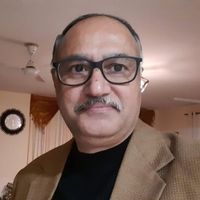Functional integration of Ayush and Allopathy is necessary
Dr. D C Katoch, Senior CMO (Ayurveda), CGHS, Ministry of Health & Family Welfare, believes that through 75 years of diligent efforts, India’s AYUSH sector is well poised to bridge critical healthcare gaps for India and the world. But for this, it is important to address regulatory challenges and ensure functional integration with modern healthcare systems.

Image credit: Shutterstock
The term AYUSH, which is an acronym for Ayurveda, Yoga & Naturopathy, Unani, Siddha and Homeopathy – is a unique amalgamation of healthcare systems being practiced in India. Ayurveda, the oldest of them, is in existence for more than 5,000 years, dating back to its root references in the Vedas. The first classical compendium of Ayurveda is Charaksahita, written around 3,000 years back. Sowa-Rigpa, a trans-Himalayan traditional medicine system is a recent inclusion into the family of Ayush since 2010. Homeopathy came from Germany to India in 1920, but now it is totally assimilated into the Ayush family.
Interestingly, people around the world, often refer to Ayush as alternative systems of medicine. But we must understand candidly that these are rather conventional systems of healthcare in the country, and more so, they are not only medical systems, rather holistic healthcare systems. The approach of these systems, whether it Ayurveda, Yoga, Unani, Naturopathy, Siddha or Sowa-Rigpa, is intended to promote healthy living with established concepts for prevention of diseases, promotion of health and treatment of illness. The basic approach of all these systems for health, disease and treatment is holistic, and comprehensive in terms of physical, psychological, environmental, social and spiritual aspects.
Policy support to Ayush systems has been there in India right from the beginning, evolving progressively from tolerant to inclusive and integrated. For the last 7-8 years, government has extended exclusive policy support for Ayush systems to galvanise the efforts for public healthcare and improvement of health indices.
Challenges pertaining to Non-Communicable Diseases (NCDs), Life style disorders, long term diseases, multi drug resistant diseases, emergence of new diseases etc, have led to renewed interest in all AYUSH-based healthcare systems. Yoga is now well popularized across the world, and many countries are integrating it in their healthcare delivery system.
Over the last 75 years, India has developed huge infrastructure of Ayush and it is estimated to have around 750 Ayush colleges, 800,000 institutionally qualified registered. practitioners, 3,500 government hospitals, 26,000 dispensaries, 12 National Institutes and 5 Research Councils. National Health Mission and National Ayush Mission have been implemented by the Government of India sinçe 2007 and 2012 respectively, which have facilitated establishment of 40,000 Ayush facilities in Primary Health Centres (PHCs), Community Health Centres (CHCs) and District Hospitals of the country. More than 60% of District Hospitals in the country are having Ayush facilities. As far as population coverage through Ayush is concerned, more than seven Ayush doctors are available for 10,000 people.
Moreover, standardization of Ayush health services has been initiated. Now we have more than 70 NABH-accredited Ayush hospitals and Day care centers. The 3Ps – practice, practitioner and products – of Ayush are being promoted with quality control mechanisms and certification and accreditation systems. Pharmacopoeia Commission of Indian Medicine and Homeopathy and Bureau of Indian Standards (BIS) have respectively taken up standardization of the drugs and materials used in Ayush systems. They have recently brought out standards of the Yoga mat and the first product standards of Ayush for the purpose of quality certification.
The concept of integrative medicine has emerged recently and many of the hospitals in the country have set up Ayurveda and Yoga units. Treatment protocols there include Ayurvedic/Yoga interventions in the management of patients.
Similarly, in some premier hospitals like All India Institute of Medical Sciences, there is an integrated health unit to provide Ayush services. Tertiary care Ayurveda hospitals like All Indian Institute of Ayurveda and some state hospitals have also been set up by the Government.
During Covid outbreak, State Government-run Ayurveda hospitals and All India Institute of Ayurveda were converted into COVID hospitals where pure Ayurvedic treatment was imparted for prevention or during quarantine, and management of mild to moderate cases of Covid illness and for rehabilitation. And the success rate was excellent. From the All India Institute of Ayurveda, no death of any admitted case was reported in the last two and half years.
Ayush in international markets
Ayush holds a very strong potential, given their inherent strengths for holistic healthcare as well as the supportive ecosystem. As per the WHO strategy for traditional medicine development across the globe, all the four pillars – policy, safety, efficacy and quality, access and rational use of Ayush are quite strong in India. Interestingly, during the COVID-19 outbreak, as many as 68 clinical trials related to Ayush drugs, were registered in the CTRI (Clinical Trial Registry of India) and many of them were supported through the Extra-Mural Research Scheme of the Ministry of Ayush. This means that scientists and doctors are interested to work for Ayush for scientific validation and other aspects.
At the international level, WHO has brought out certain publications related to Ayush like benchmarks of practice and education of Ayurveda and Unani for harmonized development of these systems across the world.
At the government level now, there are MOUs between Government of India and around 30 different countries regarding mutual recognition of traditional systems of medicine, as well as the products and practitioners. That is why many countries are demanding Ayush experts from India to provide Ayush health facilities and to do promotional activities. In more than 30 Indian Missions, Ayush information cells have been set up by the Government of India to disseminate proper information related to Ayush treatments and their centres, institutions, etc.
However, mutual recognition of traditional healthcare systems still poses a daunting challenge. Ministry of Ayush have had several discussions with foreign regulators and the Ministry of Commerce to facilitate Free Trade Agreements or Mutual Recognition Agreements with other countries for exports of Ayush products.
In fact, Ayush products in India are manufactured here the provisions of the Drugs and Cosmetics Act. They are medicines here, but are being exported in the form of food supplements, dietary supplements, self-health foods or general health products. So they are not recognized as drugs in many foreign countries. Despite strong demand, market authorization of Ayush in international markets remains a challenge.
Medical tourism, on the other hand, is one area where Ayush has witnessed more success, and this needs to be tapped further. The best model in our country for promoting medical tourism through Ayush is Kerala. The Kerala Government has adopted a system of accreditation of Ayush centers at tourist places. These centres have been provided Silver Leaf accreditation, Golden Leaf accreditation, etc, which ensures quality benchmarking and imbibes a sense of security for patients coming from abroad. That model needs to be replicated in other parts of the country.
During the Covid pandemic, it was very clearly realized that holistic health care and immunity boosting can come only from traditional Indian systems of medicine or Ayush. That is why exports of Ayush products have surged from US$ 3.2 billion in 2016 to over US$ 10 billion in 2022. On the other hand, the domestic market of Ayush products, has also increased and is estimated to the tune of Rs 50,000 crores.
Just at the onset of Covid-19 outbreak in India in January 2021, Ministry of Ayush started notifying various Ayush specific guidelines for practitioners, institutions, research centres, and state governments about preventive and treatment approaches towards Covid-control. These guidelines helped a lot in promoting Covid-specific do’s and don’ts, remedies and behaviour change communications for adoption by the masses in the prevention of Covid-19 infection and management of quarantine and positive cases. Ayush health centres, research bodies, professional associations, NGOs and individual practitioners toiled hard to contribute in the control of the prevailing Covid-19 outbreak across the country.
Synergising traditional and conventional healthcare
Whether it is the modern medical system or the Ayush system, more than 75% of the infrastructure is in private sector. So incentivization and public-private partnership is key for ensuring effective and quality services of Ayush to the people. Accordingly, we can improve or expand the outreach of our health services in the country.
People recognize the importance of Ayush systems now, but functional integration in the healthcare delivery system of our country is required. Our model of integration is quite different from China. In China, there is a complete amalgamation of traditional and conventional medical facilities. Physical integration of health facilities started through National Health Mission and National AYUSH Mission need to be translated into functional integration as well.
Today, while more than 70% of PHCs, CHCs and District hospitals in India have Ayush facilities, the practitioners are not working in collaboration with allopathic doctors. Collaboration of Ayush and health centres is necessary to provide maximum benefit or optimize health care delivery to the people.
The momentum achieved during the pandemic has to be maintained and we have to take AYUSH systems to the last health unit of the country. The sub center is not manned by any doctor. Proposal of posting Ayush doctors in sub-centres can enhance the outreach of health services and population coverage.

Dr. D C Katoch is currently Senior CMO (Ayurveda), CGHS, Ministry of Health & Family Welfare. He is an Ayurveda postgraduate with specialization in Kayachikitsa (Ayurvedic Medicine). He has a very long, versatile and immensely productive professional career starting as Ayurveda teacher in April 1983 from Dayanand Ayurvedic College, Jalandhar (Punjab). He joined Central Government Service as Ayurveda Physician in CGHS under Ministry of Health & Family Welfare in February 1993, promoted as Senior Medical Officer (Ayurveda) in February 1999. He was appointed as Assistant Adviser (Ayurveda) in the Department of AYUSH, Ministry of Health & Family Welfare and over the course of his career progression, he was appointed as Adviser (Ayurveda), w.e.f 15th March 2015. From April 2008 onwards he was deputed to WHO for three years as National Consultant for providing technical assistance in implementing WHO-Government of India cooperation strategy in the area of Traditional Indian Medicine and Homeopathy.
From March, 2020 to 29th January, 2021 Dr Katoch held the dual charge of Director, Pharmacopoiea Commission and Pharmcopoiea Laboratory of Indian Medicine (PLIM). He is presently serving as Senior CMO (SAG).
Dr. Katoch has more than 40 years’ professional experience in clinical, academic, policy & planning and technical advisory matters related to Ayurveda in particular and traditional medicine in general. He has represented India in many international delegations and has been member of many Technical committees and Task forces in this domain. During Covid 19 pandemic he was instrumental in evolving and notifying Ayush Kwath formulation (an Ayurvedic immunity enhancing formula created by the Ministry of AYUSH), publication of pharmacopoieal standards and formulary specifications of Ayush Kwath and various regulatory steps for quality control of Ayush drugs and advertisements.













Authentic informative article..
An excellent review of Ayush sector in comprehensive health delivery system & also in Covid illness.Well presented knowledge by an eminent Ayurvedic specialist Sr. Dr. katoch.
Excellent work for Ayurveda